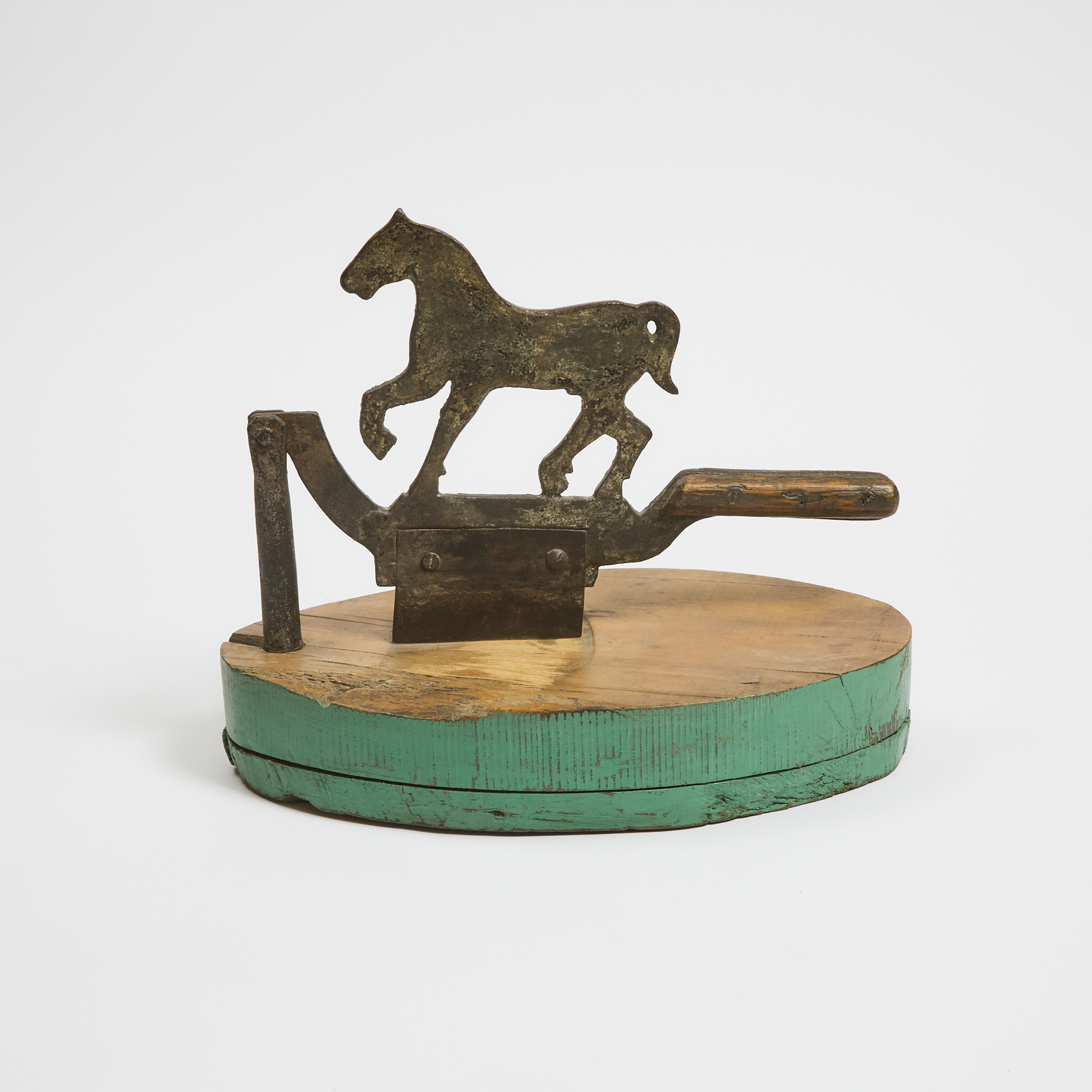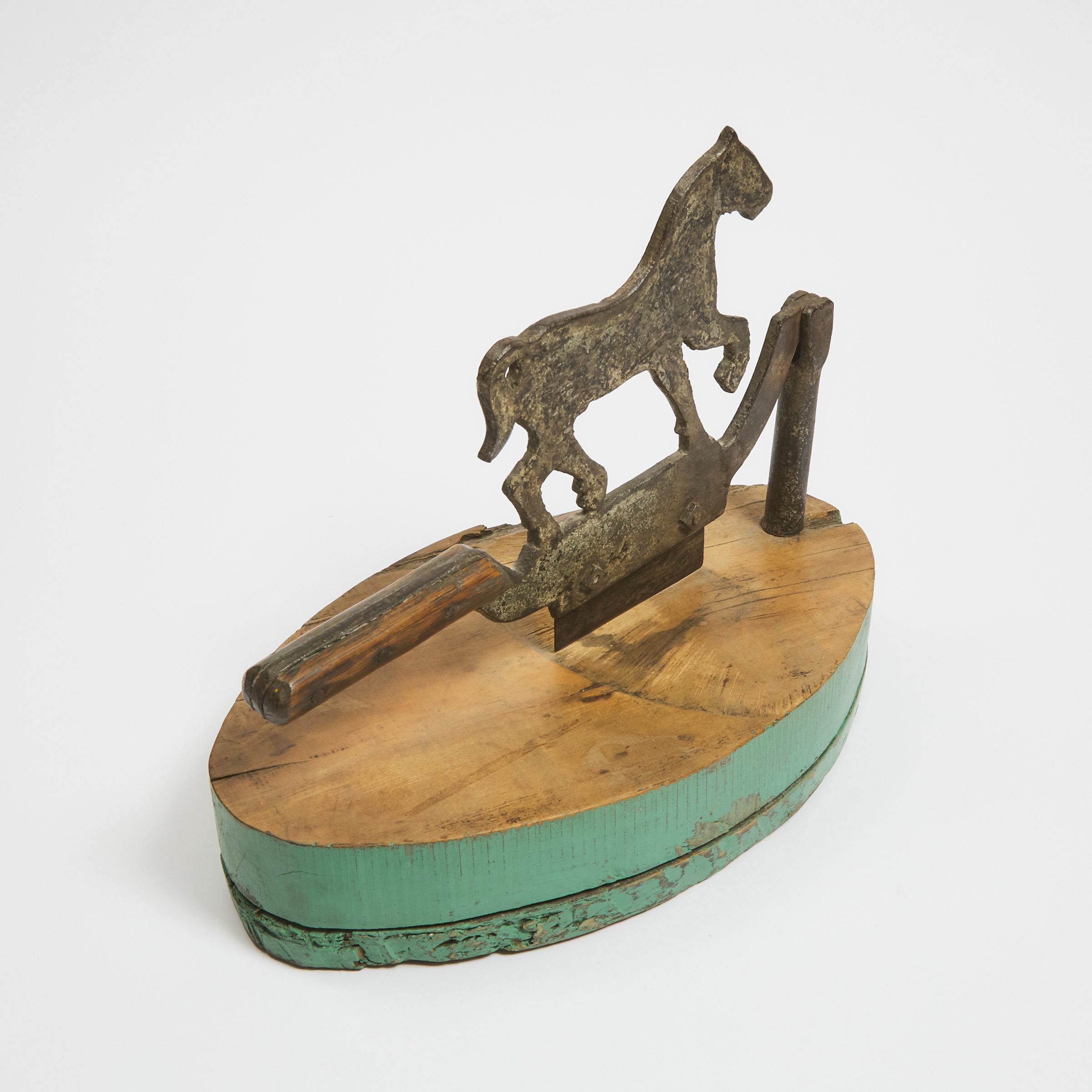Lot 61
QUEBEC PAINTED IRON AND WOOD HORSE FORM TOBACCO CUTTER, 19th CENTURY

Additional Images

Provenance:
Ex: The Wiser's Canadiana Collection, Montreal, QC
Note:
Quebec voyageurs—the French word for traveller—were contracted employees who worked for the trading firms active in Canada from the 1690s until the 1850s. These men were hired to move furs and other sundries across the untamed landscape, through often treacherous conditions, traversing a route of 5,000 kilometres. Days were long and gruelling, consisting of at least 14 hours per day of hard physical labour. Each hour, a stop was made for a few minutes to allow the voyageurs to smoke a pipe. Understandably, this pause became so cherished that distances came to be measured in pipes. As an example, “3 pipes might equal 15 to 20 miles of travel. A 32 km lake would be measured as 4 pipes or 4 hours of travel, depending on wind and waves.” Tobacco became so ingrained in Quebecois culture that even the most utilitarian items associated with smoking or chewing tobacco became charming works of folk art, as evidenced here.


